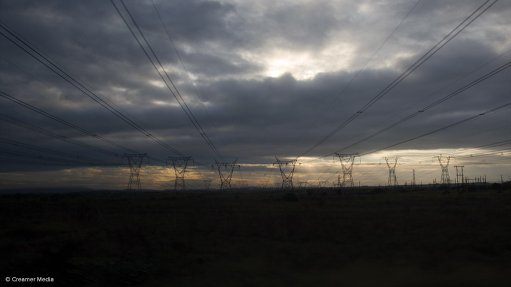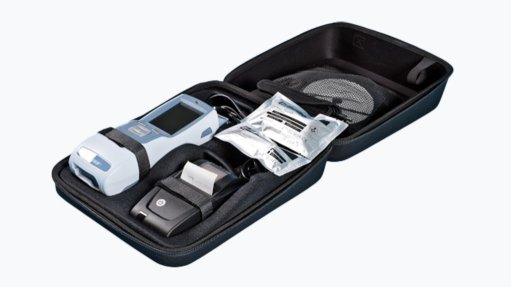PPC reports 5% y/y growth in South Africa and Botswana cement business
The revenue for cement manufacturer PPC’s South Africa and Botswana divisions for the five months ended August 31 increased by 5% year-on-year, the company reported in an operating update on September 20.
This increase was driven by higher average selling prices, despite weaker cement sales volumes during the period.
Additionally, revenues from the group's other operations in both Zimbabwe and Rwanda were significantly stronger than the previous year, increasing by 58% when measured in dollars and 19% when measured in rands.
Overall, group cement sales volumes, including for the Zimbabwe and Rwanda operations, for the five-month period were 3% higher year-on-year, primarily owing to exceptionally strong growth in Zimbabwe and, to a lesser extent, Rwanda.
However, cement volumes continued to decline in South Africa. PPC's materials business also saw a decline in volumes, but the cost reduction measures and implemented price increases resulted in earnings before interest, taxes, depreciation and amortisation (Ebitda) turning from negative last year to neutral in the current year.
Ebitda margins for South Africa and Botswana remained flat compared with the same period last year, at 11%, owing to price increases and cost-saving initiatives that maintained the margin.
Cash generation in the South Africa and Botswana group was positive, driven by the stabilised cement Ebitda, an improvement in the materials business Ebitda and lower-than-expected capital expenditure. Furthermore, cash generation included a dividend received from Zimbabwe in July of R76-million, compared with R68-million the previous year.
SOUTH AFRICA AND BOTSWANA CEMENT
Cement sales volumes in South Africa and Botswana decreased by 6% year-on-year for the five months under review. Cement sales volumes in the inland region continued their decline, albeit at a significantly lower rate, while the coastal region saw a downturn in volumes following higher-than-usual rainfall and weak retail demand.
PPC reported that the average selling price increased by 10% during the period under review as bi-yearly increases were implemented in January and July. Notwithstanding the lower volumes, this resulted in revenue growth of 5%. Ebitda for the period also increased by 5% year-on-year as margins stabilised.
PPC said it would continue its efforts to counter input price inflation through price adjustments and improved operational efficiencies and industrial performance.
Further, the company's South Africa and Botswana gross debt remained unchanged from March 31, but cash has increased from R131-million to R283-million over the five-month period, leaving net debt at R648-million as at August 31, down from R800-million in March.
Additionally, the company said the black economic empowerment (BEE) transaction announced on August 7 for 10% of PPC South Africa Holdings would be for the benefit of PPC's black South African employees.
Qualifying South African employees, therefore, participated in the amount paid by PPC Cement to PPC South Africa Holdings to enable it to declare a dividend to PPC, which will be used to fund the share repurchase of R200-million announced in June.
In terms of materials, PPC's materials business is now contributing marginally to the Ebitda of the South Africa and Botswana group following the implementation of various improvement actions. Price increases across ash, aggregates and ready-mix, together with an improved cost structure, resulted in a marginally positive Ebitda compared with a loss in the prior comparable period.
ZIMBABWE
In Zimbabwe, the cement market continued to show growth during the period because of both residential construction and government-funded infrastructure projects. PPC Zimbabwe continued to win back market share during the period following the planned maintenance shutdown in the prior year. As such, cement sales volumes increased by 42% year-on-year.
PPC Zimbabwe's average dollar selling price increased by 12% during the period. The improved volumes and pricing allowed for a meaningful improvement in Ebitda margins to 27%, a significant improvement from 14% year-on-year when there was a planned shutdown.
PPC received a $3.5-million dividend in July and expects an additional dividend to be declared upon the publication of PPC Zimbabwe's interim results in November.
Shareholders were previously advised that 19% of the 29.6% of PPC Zimbabwe held by various indigenisation parties vested on July 5, and PPC Zimbabwe expected to repurchase such shares at $0.01 each in accordance with the relevant agreements. The repurchase of such shares was approved at an extraordinary general meeting of PPC Zimbabwe's shareholders on August 29, and all such shares were subsequently repurchased at $0.01 each and cancelled. Consequently, PPC now holds 90% of PPC Zimbabwe.
Economically, PPC will receive 99.5% of all dividends until the notional vendor financing of the remaining indigenous shareholder is repaid. One-off costs incurred by PPC in connection with the unwinding of the indigenisation transaction amounted to R42-million.
RWANDA
PPC reported that Rwanda continues to see strong demand for cement in all its markets, with cement sales volumes having increased by 13% year-on-year for the five months to August 31.
Rwanda's cement sales continued to benefit from its strong domestic position as demand from infrastructure projects remains robust, the company said.
However, cement exports were impacted by increased competition owing to new competitors. Input cost increases were not able to be fully absorbed through pricing increases of 6%, resulting in PPC's 51%-owned Rwandan subsidiary Cimerwa's Ebitda increasing by 9% in South African rand terms and a reduction in the Ebitda margin to 29% from 32% as at August 31, 2022.
OUTLOOK
Overall, PPC said its outlook remains unchanged and that it will continue to focus its resources on improving profitability and cash generation in South Africa, while preserving its sound market positions in Zimbabwe and Rwanda.
The company says improved operational efficiencies and cost containment measures are still needed to mitigate rising input costs as the economic climate in PPC's key South African market remains muted.
However, PPC South Africa believes it is well positioned to benefit from an increase in cement demand.
PPC Zimbabwe expects a continued recovery, and the outlook for Cimerwa in Rwanda remains positive.
Article Enquiry
Email Article
Save Article
Feedback
To advertise email advertising@creamermedia.co.za or click here
Comments
Press Office
Announcements
What's On
Subscribe to improve your user experience...
Option 1 (equivalent of R125 a month):
Receive a weekly copy of Creamer Media's Engineering News & Mining Weekly magazine
(print copy for those in South Africa and e-magazine for those outside of South Africa)
Receive daily email newsletters
Access to full search results
Access archive of magazine back copies
Access to Projects in Progress
Access to ONE Research Report of your choice in PDF format
Option 2 (equivalent of R375 a month):
All benefits from Option 1
PLUS
Access to Creamer Media's Research Channel Africa for ALL Research Reports, in PDF format, on various industrial and mining sectors
including Electricity; Water; Energy Transition; Hydrogen; Roads, Rail and Ports; Coal; Gold; Platinum; Battery Metals; etc.
Already a subscriber?
Forgotten your password?
Receive weekly copy of Creamer Media's Engineering News & Mining Weekly magazine (print copy for those in South Africa and e-magazine for those outside of South Africa)
➕
Recieve daily email newsletters
➕
Access to full search results
➕
Access archive of magazine back copies
➕
Access to Projects in Progress
➕
Access to ONE Research Report of your choice in PDF format
RESEARCH CHANNEL AFRICA
R4500 (equivalent of R375 a month)
SUBSCRIBEAll benefits from Option 1
➕
Access to Creamer Media's Research Channel Africa for ALL Research Reports on various industrial and mining sectors, in PDF format, including on:
Electricity
➕
Water
➕
Energy Transition
➕
Hydrogen
➕
Roads, Rail and Ports
➕
Coal
➕
Gold
➕
Platinum
➕
Battery Metals
➕
etc.
Receive all benefits from Option 1 or Option 2 delivered to numerous people at your company
➕
Multiple User names and Passwords for simultaneous log-ins
➕
Intranet integration access to all in your organisation





















